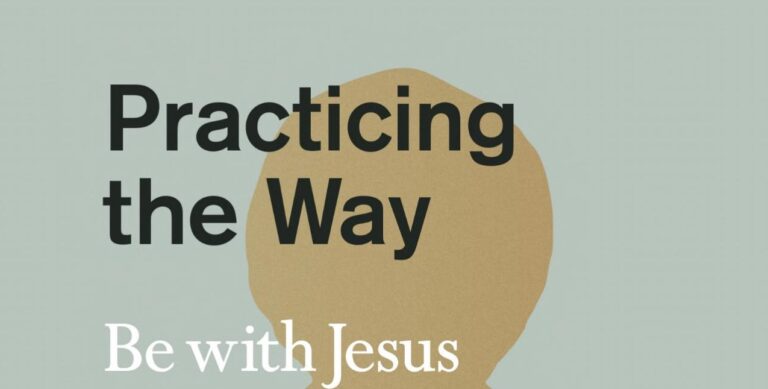The sight is familiar to many urban Christians: someone approaches your car asking for spare change. Your response—whether nervousness, fear, anger, or compassion—reveals something about your heart. More importantly, it reveals an opportunity to reflect on how the gospel shapes our response to the growing crisis of homelessness in our cities.
I’ve lived in downtown Hamilton for over 30 years. When I moved here, the North End of Hamilton was considered the third poorest community in the country. I had the privilege of pastoring a church in the core of the city for 28 years.
I frequently walk past encampments; in fact, I passed several today. According to the City of Hamilton, there were 215 people living in encampments in December 2024.[1]
The Harsh Reality
According to the ‘Housing Data Snapshot: Mental Health, Substance Use and Homelessness in Canada’[2] that surveyed 26,000 individuals who are underhoused in Canada:
- 61% struggle with substance use,
- 60% live with a mental health issue,
- 35% live with physical limitations,
- 33% live with cognitive limitations and
- The underhoused who were previously ‘youth in care’ experience an increase in substance use from 41% to 59%
According to a study from the Association of Municipalities released in July 2024, 1400 encampments existed across Ontario.[3]
In 2023, 230,000 individuals in Canada struggled with homelessness.[4]
In 2019, the second part of the Code Red series explained that the median income of one Hamilton neighbourhood was $118,000 while only a ten-minute walk away, the median income of another Hamilton neighbourhood was $20,500. That’s nearly a staggering $100,000 difference in a short walk. The median income of the wealthiest neighbourhood was $130,000. The gap in lifespan expectancy between the highest and lowest Hamilton neighbourhoods was 23 years.[5]
We are facing an epidemic of epic proportions.
Exacerbating the Housing Crisis
Inflation has exacerbated the housing crisis with increased house values and subsequently increased rental prices.
A person living on ODSP (Ontario Disability) only receives $1368 a month to live off:
- In January 2025, the average cost of a one-bedroom apartment in Toronto was $2149.
- In January 2025, the average cost of a one-bedroom apartment in Ottawa was $2018.
- In Toronto that leaves you with no money for food, clothing, phone or transit.
You have few options. You not only struggle to survive each day, but you can feel completely destitute.
This challenge is compounded by those wrestling with mental health issues. When Patrick worshiped with us, he would often tell me that he had been in Israel that week. He would track the flight patterns of birds and rainbows to let me know when Christ would return.
How would you survive off $1368 per month if you believed you had been in Israel that week?
- Imagine never being able to eat out for dinner
- Imagine never being able to purchase clothes
- Imagine not being able to own a phone
- Imagine not being able to provide for your children
- Imagine never leaving your town, province or country
What Does Scripture Say About the Poor?
The Bible speaks extensively about God’s heart for the poor and His call for His people to care for them.
In Isaiah 58, the prophet calls God’s people rebellious. Although they are participating in worship, seeking God daily, offering sacrifices and fasting, they are taking advantage of the poor. God declares that a right relationship with Him will cause us to break the yokes of injustice, share our food, provide shelter and clothe the naked. He says we are not to turn away from our own flesh and blood. This isn’t simply a familial reference but rather refers to the fact that everyone, including the poor, are image bearers of God. As John Oswalt says, “All humans are of the same stuff; why should I conceal myself from one whose condition is different from mine, but whose essence is the same?”[6]
God’s high calling to care for the poor is based on our pre-fall condition. We are all made in His image.
In verse 9 of Isaiah 58, the prophet declares that we are to do away “with the pointing finger and malicious talk.”
The pointing finger says, “It’s their fault. It’s their problem.” Malicious talk piles verbal abuse on the poor by belittling them and making light of their plight.
Are the poor not like the man left for dead in the parable of the Good Samaritan in Luke 10? Do we pass by on the other side or stop to help? He stopped, disregarding the time required from his schedule and the money it cost him to care (Luke 10:25–37).
Are the poor not welcomed into the great banquet of Luke 14 where Jesus calls those who are part of His Kingdom to hospitably invite the poor into their homes and lives? When was the last time you welcomed someone who was struggling with their daily sustenance into your home (Luke 14:1–24)?
The impoverished believers are cared for by the church as those that have more sell some of what they have to help those with less (Acts 2:42–47 and 4:32–37).
Is true religion not to care for the orphans and widows in their distress (James 1:27)?
Are we faithless when we pass by brothers and sisters in our church communities who are going home without adequate clothes or food (James 2:14–19)?
It’s important to note that some of the passages refer specifically to God’s people caring for each other and some refer to God’s people caring for the impoverished around them.
We Look to Christ As Our Example
Christ lived among the poor and cared for them. He was born among the animals. He was crucified among the criminals. He healed beggars and He never rebuked them for begging. He abandoned the comfort of glory as His Deity was wrapped in humanity in a virgin’s womb. He was raised by a family with little means noted even as they consecrated Him (Luke 2:24).
He calls us to take up our cross and follow Him. How do we do so when caring for the poor?
To solve the encampment crisis, we need to stop relying on our government. To my knowledge, the only passage in Scripture that calls the government to care for the poor is Psalm 82:3–4. In the hundreds of other passages in Scripture that talk about God’s care for the poor, He calls His people to do so.
How Should the Church Respond to the Encampment Crisis?
1. We ensure there are no needy among us. It starts with God’s people ensuring that everyone in our midst is cared for. It doesn’t mean everyone has equal share, but it does mean everyone has a fair share. This call extends beyond the walls of our churches to other brothers and sisters across our cities and nation who are struggling.
2. We invite the homeless into our lives. Talk to them. Listen to their stories. Hear their plight. You can’t do this for everyone, but you can do this for someone. Befriend someone who is struggling with homelessness.
3. We house those that are homeless. This could start with offering an out-of-the-cold ministry at your church or by encouraging your people to foster and adopt youth and children who are homeless. It could mean you take someone in, and you provide them with food and shelter.
Your church could consider providing affordable and supportive housing. Affordable will mean your church will put money into the housing ministry and not benefit financially from the housing. Supports include practical assistance like helping someone find a local physician or providing transportation to an appointment. Supports includes inviting them into Christian community so they can hear the gospel and God’s great love for them and be welcomed into the fellowship of believers as God saves them.
4. We die to self so others can live. Isaiah 58 called us to share our food, shelter and clothing. That means that we will have less so they can have more.
And God will be glorified. As His church compassionately cares for the poor, their daily conditions will improve, and many will turn to Christ to be saved. And our nation, which largely assumes His non-existence, will have no explanation for the selflessness of His people except that He has indeed saved them and transformed their lives. His witness will go forth powerfully.
The church, God’s people, must engage with the encampment crisis because the poor are image bearers of the Lord.
And as we care selflessly for the poor, “The glory of the Lord will be our rear guard as we are called Repairer of Broken Walls, Restorer of Streets with Dwellings” (Isaiah 58:12).
[1] Coleman, Joey. “City of Hamilton Releases December Encampment Stats.” The Public Record 12 January 2025.
[2] Government of Canada. “Homelessness data snapshot: Mental health, substance use, and homelessness in Canada” 22 November 2024.
[3] Association of Municipalities of Ontario. “Homeless Encampments in Ontario.” 2 July 2024.
[4] Statistics Canada. “A Review of Canadian Homelessness Data, 2023.” 16 June 2023.
[5] Buist, Steve. “Code Red. Ten Years Later Part 2: So close, so far.” The Hamilton Spectator 22 February 2019.
[6] Oswalt, John. (1998). The Book of Isaiah Chapters 40-66. The New International Commentary of the Old Testament. Eerdmans. (504).
























